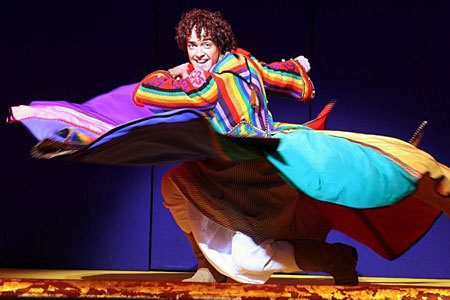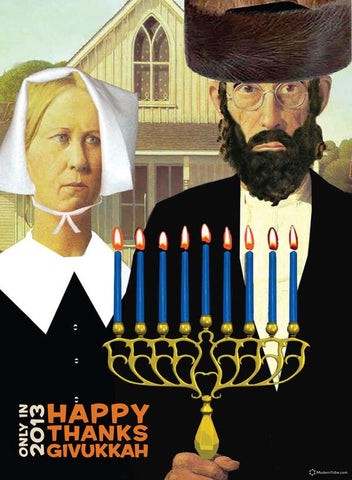 |
| In some of the Dead Sea
Scrolls, the word YHWH is written in the ancient Hebrew letters used during the first Temple period. Other scrolls simply wrote three or four dots in place of God’s name. |
As
a child we loved to annoy our teachers by dropping God’s “explicit name” in
class whenever possible. We’d throw out a “YHWH” here and a “Jehovah” there, or
simply an “Adonai” when the more benign “HaShem” was called for. Looks of shock
and anger would ensue, followed by a stern lecture which would derail the class
for at least 20 minutes, much to the delight of students everywhere. In
hindsight I justify my childish lashing out as a juvenile theological
criticism. I was objecting to the cowardly distancing from the raw power and
holiness of the very God they were trying to get us to believe in (really!).
Indeed,
part of what is lost by the replacing God’s explicit name – YHWH – with its
more benign stand-ins (HaShem, Lord or worse, God) is the
fact that YHWH is an unpronounceable name. A straightforward pronouncing
produces no more than a breath. Its fleeting meaning is best described by God
in last week’s Torah portion: “Ehyeh asher Ehyeh” – I shall be what I
shall be.
YHWH
is fleeting and ineffable, but never inapproachable. God, Lord, “The Name” and
all the rest of those theo-isms don’t get close to the mystery, awe and
paradoxicality of YHWH.
This
week’s Torah portion opens with a rare reflection on two of God’s names: YHWH
and El Shaddai. El Shaddai is the name which God uses in Genesis with Abraham,
Isaac and Jacob whenever promises are involved. Now, with the move to Exodus,
we seem to graduate from El Shaddai to YHWH:
What
does El Shaddai mean? Of the many
answers, my favorite come from the Hebrew word “Dai” – די, enough.
[Sha-Dai - שֶׁ that, דַּי is sufficient]. Rashi explains the name in those terms when “El
Shaddai” first appears in the Torah, with God trying to convince a 99 year old
man that he will indeed have a child:
And
Abram was ninety-nine years old,
and
God appeared to Abram, and He said to him,
"I
am El Shaddai; walk before Me and be whole.”
(Genesis
17)
|
ויְהִי אַבְרָם בֶּן תִּשְׁעִים
שָׁנָה וְתֵשַׁע שָׁנִים
וַיֵּרָא יי אֶל אַבְרָם וַיֹּאמֶר
אֵלָיו:
אֲנִי אֵל שַׁדַּי הִתְהַלֵּךְ
לְפָנַי וֶהְיֵה תָמִים.
|
|||||
Rashi:
I am El Shaddai:
I am He Whose Godliness suffices for every creature.… and wherever this name
appears in Scripture, it means “His sufficiency.”
|
רש"י:
אני אל שדי: אני הוא שיש די באלהותי לכל בריה, ...וכן כל מקום שהוא במקרא
פירושו די יש לו, והכל לפי הענין:
|
|||||
El
Shaddai – the God in whom there is enough for each and every being. “His
Sufficiency”. To believe in El Shaddai is to believe that there is sufficient,
that there is enough for all. It is less a faith, and more of a foundational
experience, which colors the way one walks in the world: "I
am El Shaddai; walk before Me and be whole.”
It
often seems that most of today’s religions worship a God who is “El Kana”, a
jealous God, the God of mutual exclusivism. Indeed, “El Kana” seems to be the
opposite of “El Shaddai”. The worshippers of El Kana are not wrong – there
isn’t enough in this world, at least not enough material. All wars, as
Aristotle and Maimonides contended, come from a battle over resources, which
are by definition finite. The world is a zero sum game. This psychology seems
to be behind all violence, ever since Cain hit his brother Abel.
The
only way to move from El Kana to El Shaddai is to move from the material to the
spiritual. Material is finite, but emotions are not. There should be sufficient
love for everyone. This is what the embrace of El Shaddai seems to imply. Here
is an inspiring vision for the religious people the world over: To carry El
Shaddai’s name in this world, infusing all creatures with the sense that there
is enough. Bringing “His Sufficiency”’s counter-intuitive presence to this
material world.
To
be fair, it should be “Her Sufficiency”. The probable etymology
of the Hebrew word Shaddai of course has nothing to do with Dai,
enough, but with Shadayim, Breasts. El Shaddai is the unabashed “God
of Breasts” (if only I said that one in my elementary school classroom!). A
throwback to the Canaanite feminine Gods, a pre-cursor to the Kabbalistic
feminine aspects of God, El Shaddai is God as Mother. El Shaddai is the
experience of the baby who suckles their mother’s breasts, and experiences a
world of deep sufficiency. There is enough – enough milk, enough love, enough
warmth and connection.
Perhaps
these names of God can be placed in a developmental structure. The first
experience, the Genesis, must be within an experience of El Shaddai. Similar to
maternal attachment theory, we creatures need a strong foundation of
sufficiency, of unending unbounded love. This is what Cain lacked, and what God
tried to instill in Abraham, Isaac and Jacob. However, once that is in place,
it is time to grow up, to attain a more complex world – and a more complex
Divinity – YHWH, I Shall Be what I Shall Be. Without that, no Exodus will ever
take place.
And God
spoke to Moses, saying:
I am ‘YHWH’
I
appeared unto Abraham, unto Isaac, and unto Jacob, as ‘El Shaddai’,
but by
My name YHWH
I was
not known to them.
(Exodus
6:5)
|
וַיְדַבֵּר אֱלֹהִים, אֶל-מֹשֶׁה;
וַיֹּאמֶר אֵלָיו: אֲנִי יְהוָה.
וָאֵרָא, אֶל-אַבְרָהָם אֶל-יִצְחָק
וְאֶל-יַעֲקֹב
בְּאֵל שַׁדָּי
וּשְׁמִי יְהוָה, לֹא נוֹדַעְתִּי
לָהֶם.
|














